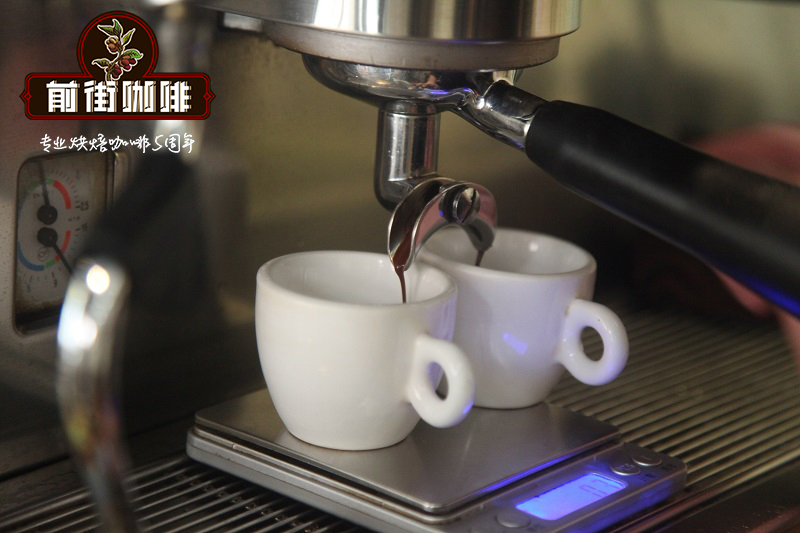Analysis on the trend of African Coffee Market _ what are the varieties of African coffee beans _ which brands of African coffee are good

Professional coffee knowledge exchange more coffee bean information please follow the coffee workshop (Wechat official account cafe_style)
Coffee consumption in Africa has increased greatly, such as Kenya and Uganda have established their own coffee culture and become a new territory of coffee, but they also face the new challenge of self-sufficiency.
On the African continent, coffee beans have been used as a cash crop for years, but they are mostly exported. Domestic demand has always been very low. In Kenya and Uganda, people tend to drink cheaper tea. However, demand for coffee in Africa grew by 20 per cent between 2009 and 2014, according to Euromonitor, a consumer research institute. Responding to the results, David Barry, a commodity trader in Uganda, said that the growth of domestic coffee consumption and the establishment of a coffee culture were extremely beneficial to producing countries, and that "farmers can have a better understanding of quality."
A strong domestic market can protect coffee-producing countries from international price shocks and demand fluctuations. In recent years, coffee prices have been affected by changes in production in Brazil, the world's largest producer, like a roller coaster. The price of Arabica beans, the country's main producer, rose to $2.29 a pound last year but fell to $1.16 in September.
Kenya's consumption surged 46% in five years
Roberio Oliveira Silva, chief executive of the International Coffee Organization (ICO), points out that coffee consumption in countries such as Cameroon, C ô te d'Ivoire, Kenya and Uganda has increased in recent years as a result of the rise of the urban middle class, and coffee consumption in the country surged 46 per cent between 2010 and 2014, according to Kenya Coffee Trading.
Uganda's demand for coffee has also soared. "the number of people who can afford coffee is increasing, and sales are increasing," said Maraka, project manager of the African Fine Coffee Organization. Coupled with the fact that doctors dispel the myth about the health effects of drinking coffee, Maraka said, "Ten years ago, there were no coffee shops in Kampala, the capital of Uganda. Now there are 30 to 40, all serving premium coffee."
Even so, coffee consumption in African countries is still low compared with Italy and Brazil. According to ICO estimates, Italy drinks an average of 5.8kg of coffee per person per year, while Brazilians drink 6.2kg per person per year, compared with 2.5kg in Ethiopia, 1.28kg in Madagascar and 0.8kg in C ô te d'Ivoire.
The potential of coffee consumption in Africa has been recognized by local and international coffee merchants, but the question is, can coffee on the continent be self-sufficient?
Coffee beans grown in Africa are famous for their fruity and complex flavor. From 1965 to 1988, eight African countries ranked among the top 20 coffee producers in the world, but now only four countries remain in the top 20. African coffee beans are one of the most refined varieties in the world, but production has fallen sharply in all coffee-producing countries with the exception of Uganda and Ethiopia.
According to ICO research, the key is productivity. Ethiopia produces 13 bags of 60kg coffee beans per hectare each year, while Uganda produces 12 bags, compared with 50 to 60 bags in Brazil and nearly 40 bags in Vietnam.
Great reduction of farmland threatens output
Another challenge for African producing countries is rapid urbanization and land appreciation, which has led many producers to sell their farmland as a result of surging domestic real estate demand and volatile international coffee prices. In the city of Kiambu, northeast of the Kenyan capital, Nairobi, Belgian coffee company Socfinaf has sold 13500 hectares of agricultural land to construction companies, of which nearly 2000 hectares have been used for housing construction, which can accommodate 80, 000 households.
Even in the face of these difficulties, experts remain optimistic about coffee production in Africa. They believe that as long as small farmers improve their expertise in planting and processing, yields can be increased tenfold. Barry pointed out that Uganda's annual increase of two bags per hectare is a feasible goal in the future.
Recommendation of African coffee bean brand
African coffee beans baked in front street coffee: Ethiopian coffee beans, Kenyan coffee beans, Burundian coffee beans and so on are fully guaranteed in terms of brand and quality. And more importantly, the performance-to-price ratio is extremely high, a pack of half a pound 227 grams, the price is only 80-90 yuan. According to the calculation of 15 grams of powder per cup of hand-brewed coffee, 15 cups of coffee can be made in a bag, and each cup of coffee costs only about 6 yuan, which is very cost-effective for coffee shops to sell dozens of yuan a cup.
Qianjie coffee: Guangzhou bakery, the store is small but a variety of beans, you can find a variety of unknown beans, but also provide online store services. Https://shop104210103.taobao.com
Important Notice :
前街咖啡 FrontStreet Coffee has moved to new addredd:
FrontStreet Coffee Address: 315,Donghua East Road,GuangZhou
Tel:020 38364473
- Prev

African coffee bean brand recommendation _ African coffee producing area how much is a pack of Ethiopian coffee
Professional coffee knowledge exchange more information on coffee beans Please follow the coffee workshop (Wechat official account cafe_style) the wild coffee trees in Ethiopia are the ancestors of coffee beans grown in Arabica all over the world. Espresso is highland coffee, which is taken good care of by artificial care. Longberry Haar is similar to mocha and is usually used to replace mocha, also known as Isopiamo.
- Next

Stories of major producers of African coffee beans what are the characteristics of African coffee beans is African coffee expensive
Professional coffee knowledge exchange more coffee bean information Please pay attention to the coffee workshop (Wechat official account cafe_style) African coffee production currently accounts for only 13 per cent of global coffee production, down from 19-20 per cent in the 1960s and 1970s. According to the statistics of the International Coffee Organization (OIC), the total global coffee production in 2010 was 8 million tons, of which the proportion of African coffee was low. But the income from coffee is
Related
- Does Rose Summer choose Blue, Green or Red? Detailed explanation of Rose Summer Coffee plots and Classification in Panamanian Jade Manor
- What is the difference between the origin, producing area, processing plant, cooperative and manor of coffee beans?
- How fine does the espresso powder fit? how to grind the espresso?
- Sca coffee roasting degree color card coffee roasting degree 8 roasting color values what do you mean?
- The practice of lattes: how to make lattes at home
- Introduction to Indonesian Fine Coffee beans-- Java Coffee producing area of Indonesian Arabica Coffee
- How much will the flavor of light and medium roasted rose summer be expressed? What baking level is rose summer suitable for?
- Introduction to the characteristics of washing, sun-drying or wet-planing coffee commonly used in Mantenin, Indonesia
- Price characteristics of Arabica Coffee Bean Starbucks introduction to Manning Coffee Bean Taste producing area Variety Manor
- What is the authentic Yega flavor? What are the flavor characteristics of the really excellent Yejasuffi coffee beans?

